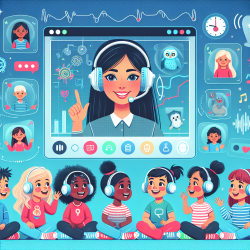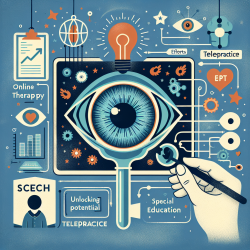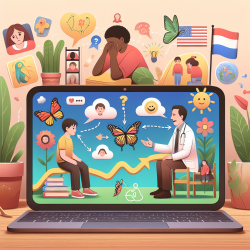Introduction
In the rapidly evolving landscape of healthcare, the integration of technology is not just a trend but a necessity. One such technological advancement is the adoption of Electronic Health Records (EHRs). While EHRs promise improved efficiency and accessibility of patient data, there are concerns about their impact on the patient-practitioner relationship, particularly in psychiatric settings where communication and confidentiality are paramount.
The Study: An Overview
The research article titled "Do electronic health records affect the patient-psychiatrist relationship? A before & after study of psychiatric outpatients" explores this very concern. Conducted by Stewart et al. (2010), the study examined the effects of EHR implementation on patient satisfaction in a psychiatric outpatient setting. The study utilized a quasi-experimental design, comparing patient satisfaction scores before and after EHR implementation.
Key Findings
The study revealed several important insights:
- Overall patient satisfaction remained unchanged with the introduction of EHRs.
- No significant differences were found in satisfaction related to communication, confidentiality, or anxiety.
- Concerns about EHRs disrupting the patient-psychiatrist relationship were largely unfounded.
These findings suggest that while EHRs do introduce new dynamics into the clinical setting, they do not inherently compromise the quality of the patient-practitioner relationship.
Implications for Practitioners
For practitioners, particularly those in psychiatric fields, these findings offer reassurance. The adoption of EHRs need not be a source of anxiety regarding patient relationships. Instead, practitioners can focus on leveraging EHRs to enhance care delivery. Here are some practical steps:
- Enhance Communication Skills: Regardless of charting modality, maintaining strong communication skills is crucial. Practitioners should continue to engage patients actively, ensuring that technology does not become a barrier.
- Focus on Confidentiality: Address any patient concerns about confidentiality proactively. Transparency about how EHRs are used to protect patient data can alleviate anxiety.
- Utilize EHRs for Better Outcomes: Use EHRs to streamline administrative tasks, allowing more time for patient interaction and personalized care.
Encouraging Further Research
While this study provides valuable insights, it also highlights the need for ongoing research. Future studies could explore the long-term effects of EHRs on patient outcomes and delve deeper into specific psychiatric conditions. Practitioners are encouraged to contribute to this growing body of research, ensuring that the integration of technology in healthcare continues to evolve in a patient-centered manner.
Conclusion
As we continue to embrace technology in healthcare, it is essential to remain focused on the primary goal: improving patient outcomes. The study by Stewart et al. (2010) reassures us that EHRs, when implemented thoughtfully, do not detract from the patient-practitioner relationship. Instead, they offer an opportunity to enhance care delivery, making healthcare more efficient and accessible. For those interested in delving deeper into the research, the original paper can be accessed here.










